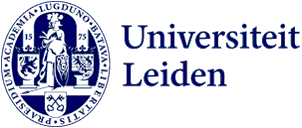
‘Artists seek and research another dimension of science’
In July, Leiden will be hosting the EuroScience Open Forum conference. Humanities scholars from Leiden will make use of the opportunity to stress the importance of art in science. ‘Artists have the ability to show the consequences of science.’
As a member of the advisory board of the EuroScience Open Forum (ESOF), Emeritus Professor Rob Zwijnenberg knew right away that he wanted to organise a session on art and science. ‘Sometimes, artists regard science quite differently from how scientists might assume they would,’ he explains. ‘They don’t simply want to bash or criticise it, they want to seek out another dimension of what science could be.’
‘We need an artist’s perspective’
That is why the ‘Art Exploring Science’ session will include artists whose work features biotechnology, the human genome and body odour. ‘Scientists like us desperately need their point of view,’ says Professor Frans-Willem Korsten who will chair the session on 15 July. ‘Scientists are curious and always want to explore things, but sometimes they get tunnel vision when focusing on their goals. As soon as they develop something, they stop asking themselves what the broader consequences might be. Art can help broaden that sensibility: what exactly is this research and what are its implications?’
‘But as humanities scholars, we have something to offer in that area as well,’ Zwijnenberg adds. ‘We don’t only provide insight into art history or art theory, we also work alongside artists. Together, we operate off the beaten track of science, which helps us see consequences that aren’t always considered. It’s good to present this to the outside world at a conference such as ESOF.’
Artists serving as an example for science
Art and humanities can therefore both aim to observe other sciences critically. However, Zwijnenberg believes that humanities can sometimes take an even greater example from artists. ‘Artists often go all the way, whereas we humanities scholars tend to err on the side of caution. After the damage is done, we say: “It’s horrible what those scientists have done; that’s not ethical.” By doing that, you exclude yourself from the debate. It’s important to be present for the preliminary debates about new scientific developments, just as particular groups of artists do.’
This approach asks a lot from humanities scholars. They are required to master not only their own subjects, but are also expected to keep up with developments in physics or medical science. ‘This is, of course, often at an incredibly high level,’ admits Zwijnenberg, ‘but once you grasp the general way of thinking, you can see where the slip-ups are.’ These often happen when scientists try to push through with their research at any cost, even if it has possible negative consequences. ‘They are often driven by strong economic forces.’
The power of humanities
These strong financial drivers sometimes make it too difficult for humanities scholars to make a real difference. ‘At the moment, scientists are considering whether a screen should be put in space to block solar radiation,’ Korsten explains. ‘I can sit there when the preliminary debates for this project are happening, but I wouldn’t stand a chance. Enormous powers like the United States and China are backing such a plan. I would have no leverage at all.’ In these cases it is best to rely on the strength of humanities, he claims. ‘As a humanities scholar, I can say that perhaps the problem is completely different. Maybe we shouldn't try to solve things using technology, but instead we have to change our attitude towards the world. That’s something we actually understand.’
The EuroScience Open Forum iis the biggest multidisciplinary science conference in Europe. The tenth edition will be held in Leiden from 13 to 16 July, in close collaboration with EuroScience in Strasbourg. ‘Art Exploring Science’ is on 15 July from 11:15 to 12:30 in the Pieterskerk in Leiden. Students and artists can attend the whole conference for a reduced fee of €50.
